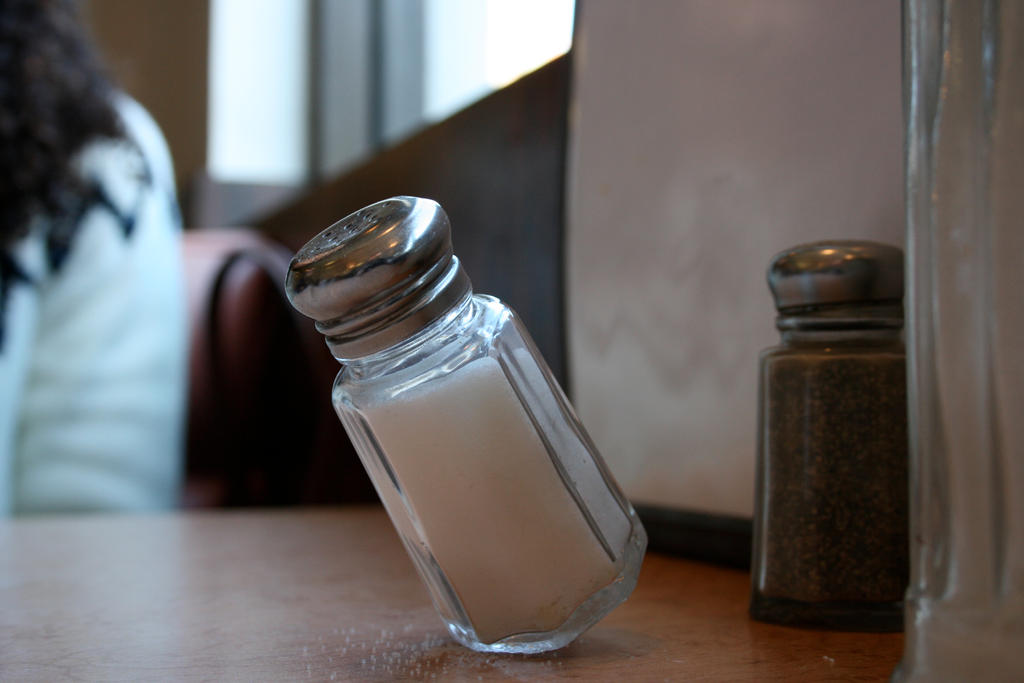For years, people have debated whether the so-called "salt trick" actually works or if it's just an old wives' tale. The salt trick has gained popularity as a simple solution for various everyday problems, from removing stains to enhancing flavors in cooking. But is there any scientific basis to support these claims? In this comprehensive guide, we'll dive deep into the truth behind the salt trick and separate fact from fiction.
Whether you've heard about the salt trick from friends, family, or social media, it's important to understand the science behind this phenomenon. As one of the most versatile kitchen staples, salt has been used for centuries in various applications beyond just seasoning food. However, not all claims about its magical properties are backed by evidence.
This article will explore the truth about the salt trick, examining its effectiveness in different scenarios while providing valuable insights based on scientific research and expert opinions. By the end of this guide, you'll have a clear understanding of when the salt trick works and when it's better to look for alternative solutions.
Table of Contents
- What is the Salt Trick?
- The Science Behind Salt's Properties
- Common Uses of the Salt Trick
- Myths vs Facts About the Salt Trick
- Health Implications of Using Salt
- Environmental Impact of Salt Usage
- Alternatives to the Salt Trick
- Expert Opinions on the Salt Trick
- Scientific Studies Supporting Salt's Uses
- Conclusion: Is the Salt Trick True?
What is the Salt Trick?
The salt trick refers to the use of salt in unconventional ways to solve everyday problems. While most people are familiar with salt as a seasoning for food, its applications extend far beyond the kitchen. From removing wine stains to defrosting frozen locks, the salt trick has become a go-to solution for many household issues.
However, the effectiveness of the salt trick varies depending on the specific application. Some uses are backed by scientific evidence, while others remain unproven or even debunked by experts. Understanding the truth behind these claims is essential for making informed decisions about when to rely on the salt trick.
The Science Behind Salt's Properties
Salt, or sodium chloride, possesses unique chemical properties that make it useful in various applications. Its ability to absorb moisture, lower freezing points, and act as a natural abrasive are some of the reasons why salt is so versatile.
For example, salt's hygroscopic nature allows it to draw out moisture from surfaces, making it effective for cleaning and de-icing. Additionally, its crystalline structure provides a gentle abrasive action, which can help remove stubborn stains without damaging surfaces.
Common Uses of the Salt Trick
Stain Removal
One of the most popular uses of the salt trick is for removing stains from fabrics and surfaces. Salt can effectively treat:
- Wine stains
- Coffee stains
- Grease stains
By sprinkling salt on fresh stains, you can absorb excess liquid and prevent the stain from setting. However, it's important to follow up with proper cleaning methods to ensure complete removal.
Cooking Applications
In the kitchen, the salt trick can enhance flavors and improve cooking techniques. Some common applications include:
- Boiling eggs with salt to prevent shells from cracking
- Using salt to clarify cloudy broth
- Adding salt to water when boiling pasta to enhance flavor
These methods are scientifically supported and widely used by professional chefs around the world.
Household Cleaning Tips
Beyond cooking, salt can be used for various household cleaning tasks. Some effective uses include:
- Removing rust from metal surfaces
- Cleaning cutting boards
- De-icing outdoor steps and driveways
While these methods are generally safe and effective, it's important to consider the potential environmental impact of excessive salt usage.
Myths vs Facts About the Salt Trick
Not all claims about the salt trick are supported by evidence. Some common myths include:
- Salt can remove permanent marker stains (partially true, but not always effective)
- Salt can kill plants (true, but harmful to the environment)
- Salt can cure hangovers (false, as it may worsen dehydration)
It's crucial to verify information before relying on the salt trick for critical tasks.
Health Implications of Using Salt
While salt is essential for maintaining proper bodily functions, excessive consumption can lead to health problems such as high blood pressure and heart disease. When using the salt trick for cooking or cleaning, it's important to consider the potential health impacts.
For example, using salt as a natural remedy for sore throats is generally safe in moderation, but excessive intake should be avoided. Always consult a healthcare professional before using salt for medical purposes.
Environmental Impact of Salt Usage
The widespread use of salt for de-icing and other applications can have significant environmental consequences. Excessive salt runoff can contaminate water sources, harm aquatic life, and damage soil quality.
As awareness grows about these issues, many communities are exploring alternative de-icing methods that are safer for the environment. When using the salt trick outdoors, it's important to consider these factors and use salt sparingly.
Alternatives to the Salt Trick
For situations where the salt trick may not be effective or environmentally friendly, there are several alternatives available:
- Baking soda for cleaning and deodorizing
- Vinegar for stain removal and household cleaning
- Commercial products specifically designed for various tasks
These alternatives often provide similar results without the potential drawbacks associated with salt usage.
Expert Opinions on the Salt Trick
Experts in chemistry, nutrition, and environmental science have weighed in on the effectiveness and safety of the salt trick. For example:
- Chemists confirm that salt's hygroscopic properties make it effective for stain removal and de-icing.
- Nutritionists caution against excessive salt consumption and recommend using alternatives for cooking purposes.
- Environmental scientists emphasize the importance of reducing salt usage to protect ecosystems.
These expert opinions provide valuable insights into the practical applications and limitations of the salt trick.
Scientific Studies Supporting Salt's Uses
Several studies have examined the effectiveness of salt in various applications. Key findings include:
- Salt's ability to lower freezing points makes it an effective de-icing agent (Source: Nature)
- Salt's abrasive properties can improve cleaning efficiency without damaging surfaces (Source: ScienceDirect)
- Excessive salt usage can have negative environmental impacts, particularly in aquatic ecosystems (Source: ScienceDaily)
These studies provide a solid foundation for understanding the science behind the salt trick.
Conclusion: Is the Salt Trick True?
In conclusion, the salt trick is true in many cases, but its effectiveness depends on the specific application. While salt's unique properties make it a versatile tool for various tasks, it's important to use it responsibly and consider alternative solutions when necessary.
We encourage readers to experiment with the salt trick in their own homes while keeping safety and environmental concerns in mind. Share your experiences in the comments below and explore other articles on our site for more useful tips and tricks!


